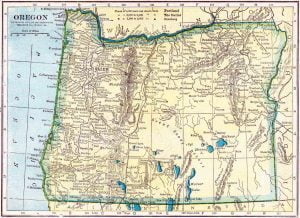Hunting Indians
At last we had reached La Bonte’s Camp, toward which our eyes had turned so long. Of all weary hours, those that passed between noon and sunset of the day when we arrived there may bear away the palm of exquisite discomfort. I lay under the tree reflecting on what course to pursue, watching the shadows which seemed never to move, and the sun which remained fixed in the sky, and hoping every moment to see the men and horses of Bisonette emerging from the woods. Shaw and Henry had ridden out on a scouting expedition, and did not return … Read more

